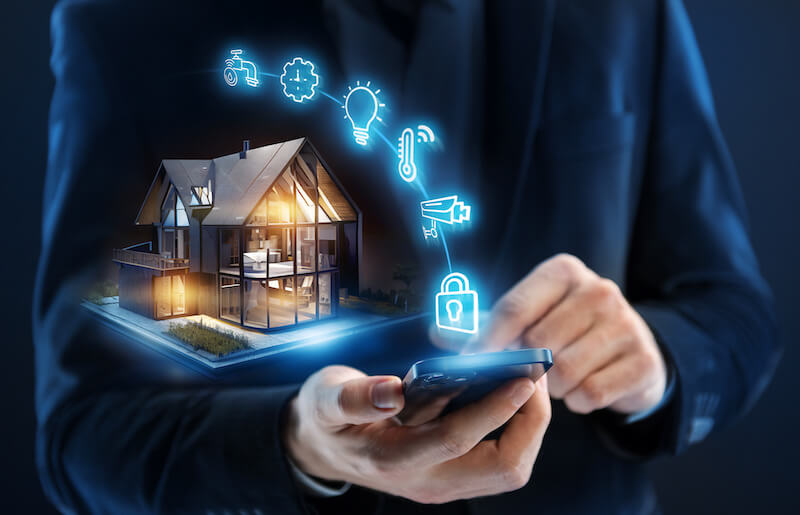The 23rd World Insights
Exploring the untold stories and events from around the globe.
Smart Homes or Smart Hoaxes? The Truth Behind Home Automation
Discover if smart homes are the future of convenience or just clever scams—uncover the truth behind home automation now!
The Promise vs. The Reality: Is Home Automation Worth It?
Home automation has been marketed as a revolutionary way to enhance our daily lives, promising comfort, efficiency, and security at our fingertips. With the ability to control lights, thermostats, and even appliances through smart devices, the concept of a fully automated home sounds appealing. However, while the promise of home automation is enticing, many consumers find themselves questioning whether the reality matches their expectations. System integration issues, high upfront costs, and the potential for obsolescence often lead to frustration rather than the seamless experience that was originally advertised.
When evaluating home automation systems, it's essential to consider both the pros and cons. On one hand, automation can lead to significant energy savings and improved home security through features like remote monitoring and automated alerts. On the other hand, the reality is that these systems can be complicated to set up and maintain, often requiring ongoing updates and technical support. Ultimately, individuals must weigh the benefits against the time and effort needed to implement and sustain such technology in their homes.

Smart Home or Smart Hoax? Debunking Common Misconceptions
The rise of smart home technology has sparked a debate: is it a legitimate advancement in convenience and efficiency, or just a smart hoax? Many skeptics argue that relying on technology for basic tasks can lead to a loss of privacy and security. However, the reality is that when implemented correctly, smart home devices provide enhanced security features, energy savings, and increased home control. For instance, smart locks can significantly reduce the risk of break-ins, while smart thermostats can optimize energy usage, cutting down on utility bills. These benefits counter the fears that often surround new technology.
Another common misconception is that smart home solutions are overly complicated and not user-friendly. In truth, many devices are designed with the average consumer in mind, offering intuitive interfaces and seamless integration with existing systems. Smart hoax claims often overlook user experiences that highlight the accessibility and simplicity of these products. Innovations in smart home technology have led to compatibility with mobile devices, allowing homeowners to control their environment with just a few taps on their smartphones. This user-centric approach debunks the myth that smart homes are only for the tech-savvy elite, making them a viable option for anyone looking to enhance their living space.
Are Smart Homes Safe? Exploring Security Risks in Home Automation
As the popularity of smart homes continues to rise, many homeowners are left pondering the question, Are smart homes safe? While the convenience of home automation offers numerous benefits, it also introduces a range of security risks that must be understood. Smart devices, from thermostats to security cameras, are interconnected through the internet, making them susceptible to cyber attacks. Hackers can exploit vulnerabilities in these devices, potentially gaining access to personal information or even taking control of the home security system. Therefore, it's essential to evaluate the security risks specific to each device and implement best practices to mitigate potential threats.
To enhance safety in smart homes, homeowners should consider several critical measures. Firstly, ensuring that all devices are regularly updated with the latest software can protect against known vulnerabilities. Secondly, utilizing strong, unique passwords for each device and network is crucial. Additionally, homeowners should consider setting up separate networks for their smart devices to limit exposure. By understanding the potential security risks and taking proactive steps, homeowners can enjoy the benefits of automation while maintaining a level of security that safeguards their personal property and data.